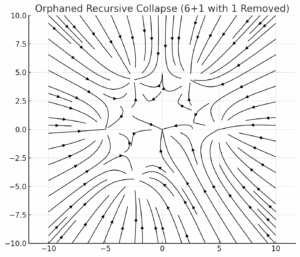In today’s hyper-connected world, ideological warfare doesn’t just shape opinions — it determines how societies unite or fracture. As Robert Axelrod asked in The Evolution of Cooperation (1987),
“How does cooperation occur in a world full of egoists?”
This question resonates deeply in an era where artificial intelligence amplifies conflicts and challenges our capacity for reasoned dialogue.
Game theory provides a framework for navigating this terrain. It shows that cooperation, even among self-interested individuals, is not just possible but essential. As AI magnifies both our divisions and our potential for understanding, the question becomes: will we succumb to polarization, or will we rise above it?
The Game Theory Perspective: Cooperation Among Egoists
Cooperation among egoists may seem paradoxical, yet game theory and evolutionary biology reveal its inner logic. Richard Dawkins, in The Selfish Gene (1976), reframes altruism not as moral virtue but as evolutionary necessity. He writes,
“A gene that programs an individual to be cooperative will tend to survive in a population where cooperation is reciprocated.”
Game theory builds on this insight. In one-shot games — isolated interactions — self-interest often dominates. However, in repeated games, where players interact over time, cooperation becomes the optimal strategy.
Game Trees: Mapping Choices in Cooperation
Game trees visually map the dynamics of cooperation and defection. Players decide whether to cooperate (C) or defect (D), and the outcomes hinge on mutual choices. For example, mutual cooperation yields the highest joint payoff (3,3), while defection leads to less optimal outcomes (1,4 or 4,1). Over time, strategies like “Tit-for-Tat” — start with cooperation and mirror the other player’s actions — build trust and mutual benefit.

In ideological warfare, this principle offers hope. Axelrod’s research reminds us:
“The best way to increase the level of cooperation is to adopt strategies that enhance mutual benefit.”
By understanding this, we can replace zero-sum mentalities with approaches that prioritize dialogue over division.
The Cognitive Trap: Distorting Reality Through Ideology
Cognitive dissonance — the tension caused by conflicting beliefs and actions — is a central driver of ideological warfare. AI, designed to maximize engagement, often amplifies this tension. Algorithms reinforce biases by pushing users into echo chambers, intensifying divisions.
This diagram illustrates the paths individuals take to resolve dissonance: changing beliefs, actions, or perceptions. Unfortunately, AI-driven narratives frequently lock users into cycles of reinforced bias, deepening polarization instead of fostering understanding.

As Gaston Richard observed in The Cartesian Mechanism, society operates as a complex system of interactions rather than isolated components. AI simplifies this complexity with deterministic rules, overlooking the nuance of human dynamics. Overcoming this requires reflective engagement: questioning our assumptions, seeking diverse perspectives, and stepping out of the cognitive traps AI often amplifies.

Reflective Engagement: A Turning Point for Society
Reflective engagement provides the antidote to zero-sum thinking. Instead of seeing ideological warfare as a contest where one side must win, we can embrace strategies that prioritize understanding. While AI is often blamed for deepening divides, it can also facilitate connection — if designed with ethical intentions.
Platforms that prioritize diverse perspectives over sensationalism can shift societal focus from tribalism to cooperation. Algorithms built for reasoned discourse — not outrage — can encourage collaboration. This requires technological innovation and a collective commitment to rethinking how we interact online.
A Call to Cooperation: Everyday Actions to Build Trust
Cooperation begins with daily choices. Here are four simple strategies to foster collaboration and trust:
1. Say Hello: Greet strangers, colleagues, or neighbors. Acknowledging others opens doors to understanding.
2. Invite Dialogue: Ask someone with differing views for their perspective. Listening builds empathy and mutual respect.
3. Model Openness: Share your thoughts without defensiveness. Vulnerability fosters connection.
4. Be Curious: Seek to learn something new about someone every day. Curiosity bridges divides and nurtures cooperation.
Each of these actions creates ripples of trust, proving that cooperation isn’t a grand gesture — it’s the simple art of being human.
Your Turn
We often blame machines for dividing us, but isn’t it our reflections in their mirrors that cause the real fracture?
AI amplifies both division and opportunity. The choice is ours: will we let it define our conflicts, or will we use it to deepen our connections? Let’s discuss in the comments — and join me on this journey for more insights into philosophy, technology, and the power of cooperation.
With many thanks for your rewarding attention,
A.
Litterature and References:
1. Robert Axelrod — The Evolution of Cooperation, 1987.
2. Richard Dawkins — The Selfish Gene, 1976.
3. Gaston Richard — The Cartesian Mechanism.
4. Simply Psychology — Cognitive Dissonance (link).
5. Internet Encyclopedia of Philosophy — Repeated Games (link).






